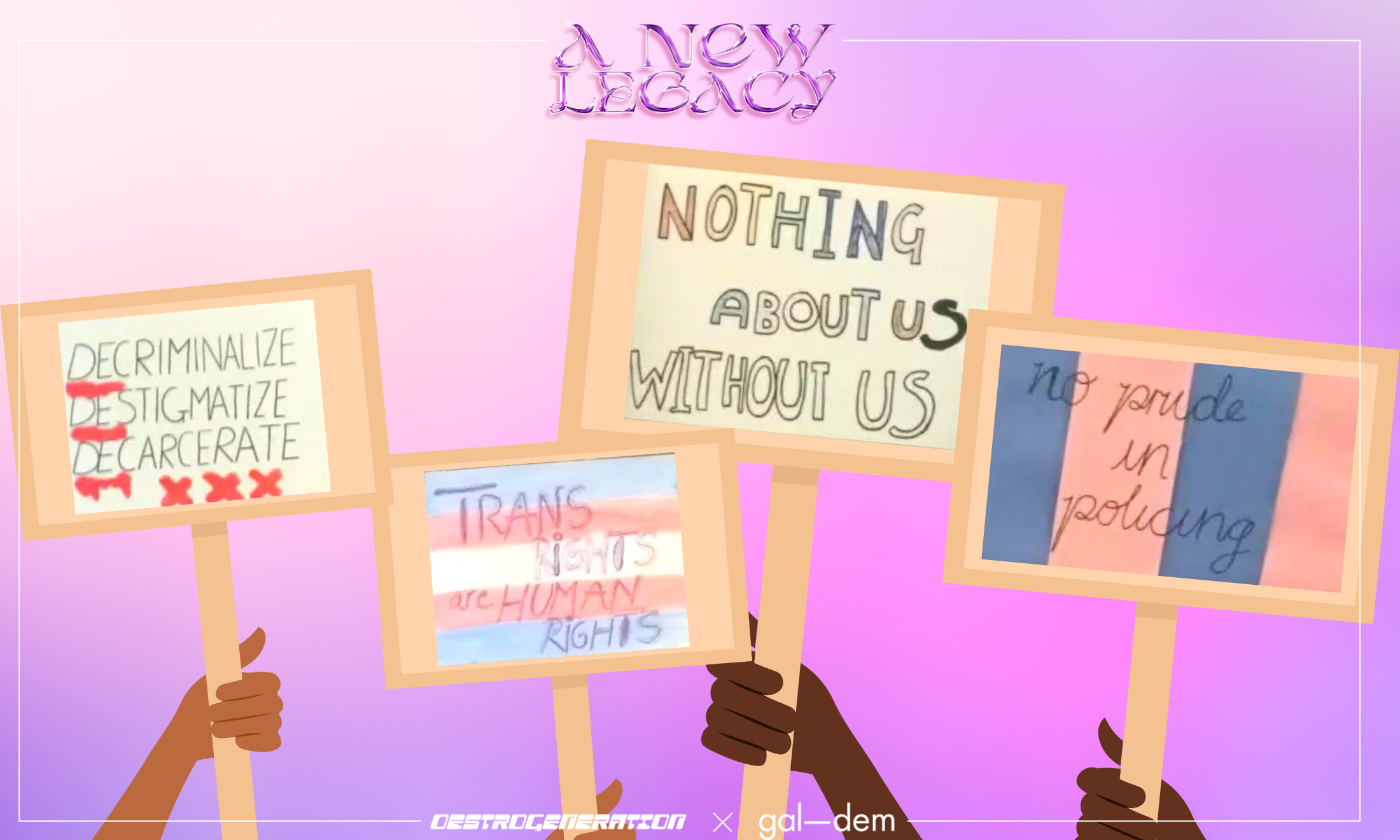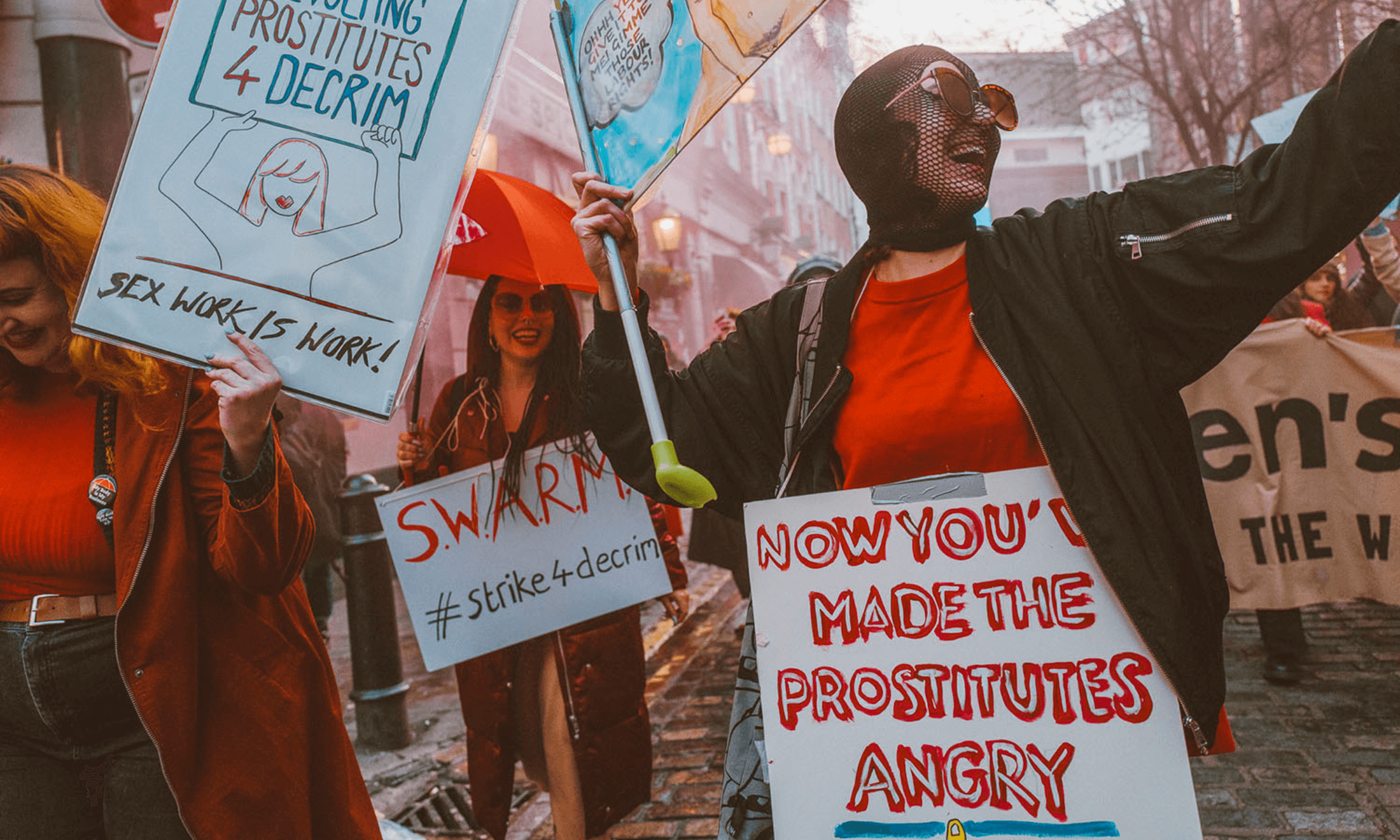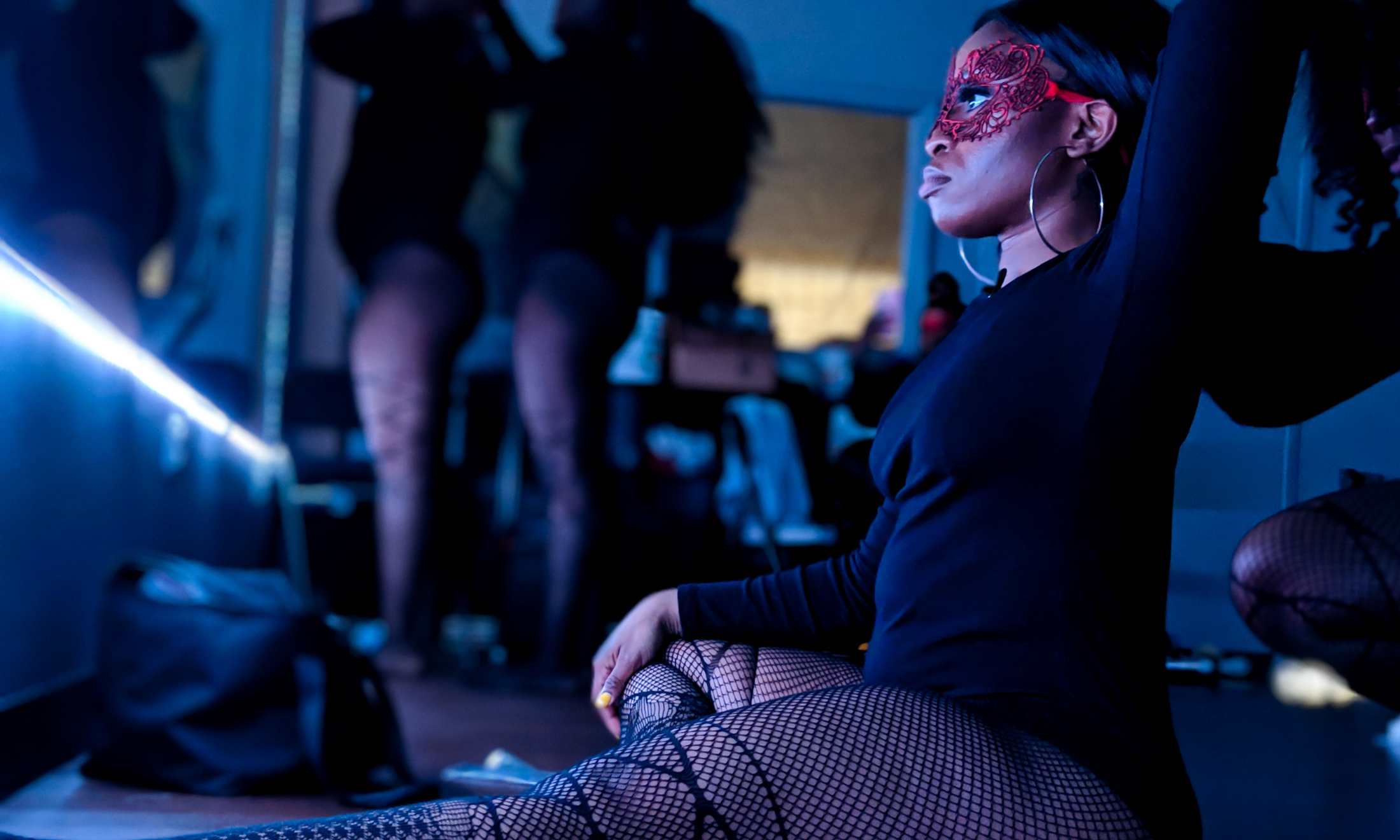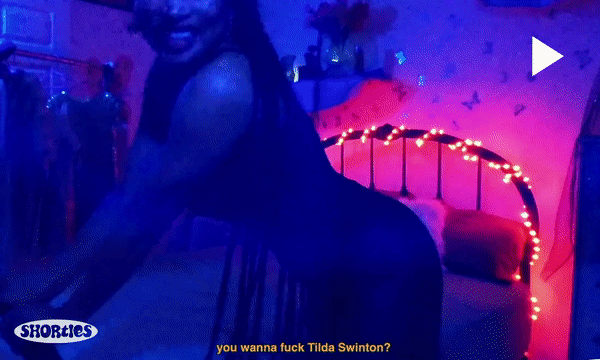
Still from 'We are the Womxn' by FKA twigs
We need to rethink how sex workers are portrayed in pop culture
More and more, sex workers are being used for aesthetics in popular culture, here's why sex workers should be telling their own stories and experiences.
Lady Venus
31 Jul 2020
Sex work is one of the most stigmatised professions in the world, and yet people remain fascinated with the lives, images and fantasies the media creates around sex workers. Strippers, in particular, have a long history of being portrayed on film. In the last decade or so, the mainstream view of stripper culture has had a bit of a renaissance, with exotic dancers becoming a part of pop culture iconography – and when it comes to renaissance and pop-culture, FKA twigs is the queen.
FKA twigs’ image has morphed over the years to become a cosmic amalgamation of Elizabethan lace and baby curls dipped in molten chrome. With a background in cabaret, once being a staple at The Box in Soho, she’s been honing her skills in the last few years in the art of pole dance, and she’s become exceptionally good at it. But recently, she’s been attracting some criticism from members of the stripper community, with claims she has been deleting comments from social media by sex workers and of being a “culture vulture”.
The criticisms come after the release of her short film, We are the Womxn in July. The film shows twigs, alongside spiritual leader Queen Afua, performing a sacred moon dance before going on a “pilgrimage” from the stage of Afropunk 2019 in Atlanta to the Blue Flame Strip Club. Shot on grainy film, the whole thing is short, sweet and visually appealing, yet certain aspects raise a few eyebrows.
“The sex work community needs more than just being the backdrop to your talent”
Her latest album takes its name from the biblical figure of Mary Magdalene, the disciple who was potentially a favourite of Jesus and has over the centuries come to be known as a prostitute. ‘Magdalene’ is twigs’ exploration of herself after heartbreak– “A woman’s work/ A woman’s prerogative/ A woman’s time to embrace/ She must put herself first.” There is a celebration of the idea that the spiritual and the sexual can coexist – “I do it like Mary Magdalene.” This is most certainly true – the sensual and the sacred are not just mutually exclusive, they exist in harmony. Finding different ways of contextualising sex work isn’t just important towards normalising conversations around it, but also in terms of finding ways to express joy, pain, trauma and healing with autonomy and agency. This is important for marginalised people like sex workers of colour, when our sense of agency is readily exploited and stigmatised. It is important, though, that these acts of self-expression are completely our own – if not, artists run the risk of being exclusionary at best and exploitative at worst.
The stereotyping of sex workers is no new thing. The patriarchal media has been hell bent on victimising us since we first appeared on screen. But there is also something troubling when sex workers are used as a sensationalistic image under the guise of “feminism”. Most recently, this was the case in the 2019 movie Hustlers. Even before it’s release, we heard allegations that the dancers whose lives the story was based off of received no compensation and that dancers were unable to work for the week that their club was closed while they filmed scenes for the movie. Considering the film had a woman director, an all woman-led cast and even hired stripper and artist Jacq the Stripper as a consultant – you have to wonder how it missed the ethical mark so well.
We are the Womxn echoes something similar. twigs, pale and dressed in custom white lace, writhes on the stage of the Blue Flame and stands in designed contrast to the mostly dark-skinned, muscular dancers around her. For all the creativity twigs and her team possess, the final product feels somehow contrived and certainly feels out of touch.
“While strippers maintain an image of wealth and glamour, this is genuinely not the case for everyone, and strip clubs have been hit hard by the pandemic”
In an interview with WeTransfer, who sponsored the film, twigs said, “I decided to hold the second part of the all-female and femme sacred moon dance at Blue Flame, firstly to honor the heritage of pole dancing, but also to create a matriarchal dominance in a space that’s usually filled with, and run by, male energy.”
These words assert an idea that sex workers, in their own place of work, have little or no agency or control, that an external force was required to create this sense of spirit. “Matriarchal dominance”, as she calls it, ritual and rite are found in abundance in strip clubs, brothels and dungeons around the world – it just doesn’t look like what you might think it does.
There is no denying that twigs is an incredible artist. Her creativity, skill and passion is boundless, and her accolades are deserving. We are the Womxn does go some way towards celebrating sex workers and demystifying the separation that exists between the club and the outside world. It is important to consider however, when creating work around sex work, the implications of creating a potentially false narrative that idealises a community who struggle to have their stories heard. As artists like twigs find great success and having found strong inspiration from the stripper community, certain work must be done to elevate the voices of the people within it. That is where this video fails. The strippers in this video are placed as a background, an aesthetic, within their own place of work while twigs is centred throughout.
Intersectionality exists within sex work too. Right now, sex workers around the world are experiencing massive hardship and huge loss of work due to Covid-19, with added pressure due to the stigmatisation of work. Real solidarity would be, first and foremost, to acknowledge and highlight this fact. Around the world, mutual aid groups have been set up by community led organisations to support sex workers who are experiencing destitution and poverty. While strippers maintain an image of wealth and glamour, this is genuinely not the case for everyone, and strip clubs have been hit hard by the pandemic.
“Stripping, like any form of sex work, is not easy money, nor is it necessarily a transcendent experience when you are being groped by men”
While We are the Womxn is highly artistic, its feminism falls short of supporting the dancers who make it what it is. This is in direct contrast to a film that by now most of us have seen, Shakedown. Created by Leilah Weinraub, Shakedown is a documentary about an underground lesbian strip club that ran regular events in downtown Los Angeles in the 2000s. It highlights the experiences and talents of the dancers, their lives and their struggles, in such a way that empathises and celebrates, but doesn’t victimise. The 2015 movie Tangerine, directed by Sean Baker and starring Kitana Kiki Rodriguez and Mya Taylor, follows Sin-Dee and Alexandra, two transgender sex workers as they dream, experience love, sorrow and joy through their city, Los Angeles. These films show that it is possible, as a non-sex worker, to make a movie about us and get it absolutely right. It just takes sensitivity, empathy and the willingness to centre our voices.
Being progressive means understanding sex work outside of the perceived hierarchy (or whorearchy) within it, whilst understanding how the intersections of race, class and gender impact sex workers’ lives. While we create our own futures, it’s important to be honest about the way things are. Stripping, like any form of sex work, is not easy money, nor is it necessarily a transcendent experience when you are being groped by men (and pretending that you like it), working night shifts and long hours, worrying about being “outed”’ or struggling to make ends meet for the family you care for/ let alone the expenses that come along with the eurocentric beauty standards that must be maintained. As a sex worker of colour, there is the added racism, misogynoir and rejection to endure. Let’s be clear – twigs hasn’t been cancelled. But if you’re reading this twigs, the sex work community needs more than just being the backdrop to your talent. We need to be seen and heard fully and valued for all our complexities. People like you have the power to amplify us, or erase us.
Update: Since this article was published, FKA twigs has released a statement on Instagram. “i feel like now is the time for me to step forward, pay respect, and shine a light on the challenges facing sex workers, especially during these uncertain times. sex workers I know and have met have discipline, craft, talent and work ethic – not only do they deserve better long-term, but their income has been wiped out by the lockdown and many are invisible to the financial aid available to others.”
Support sex workers by donating to and following organisations such as Sex Workers Advocacy and Resistance Movement (SWARM), National Ugly Mugs, English Collective of Prostitutes and the East London Stripper Collective.









